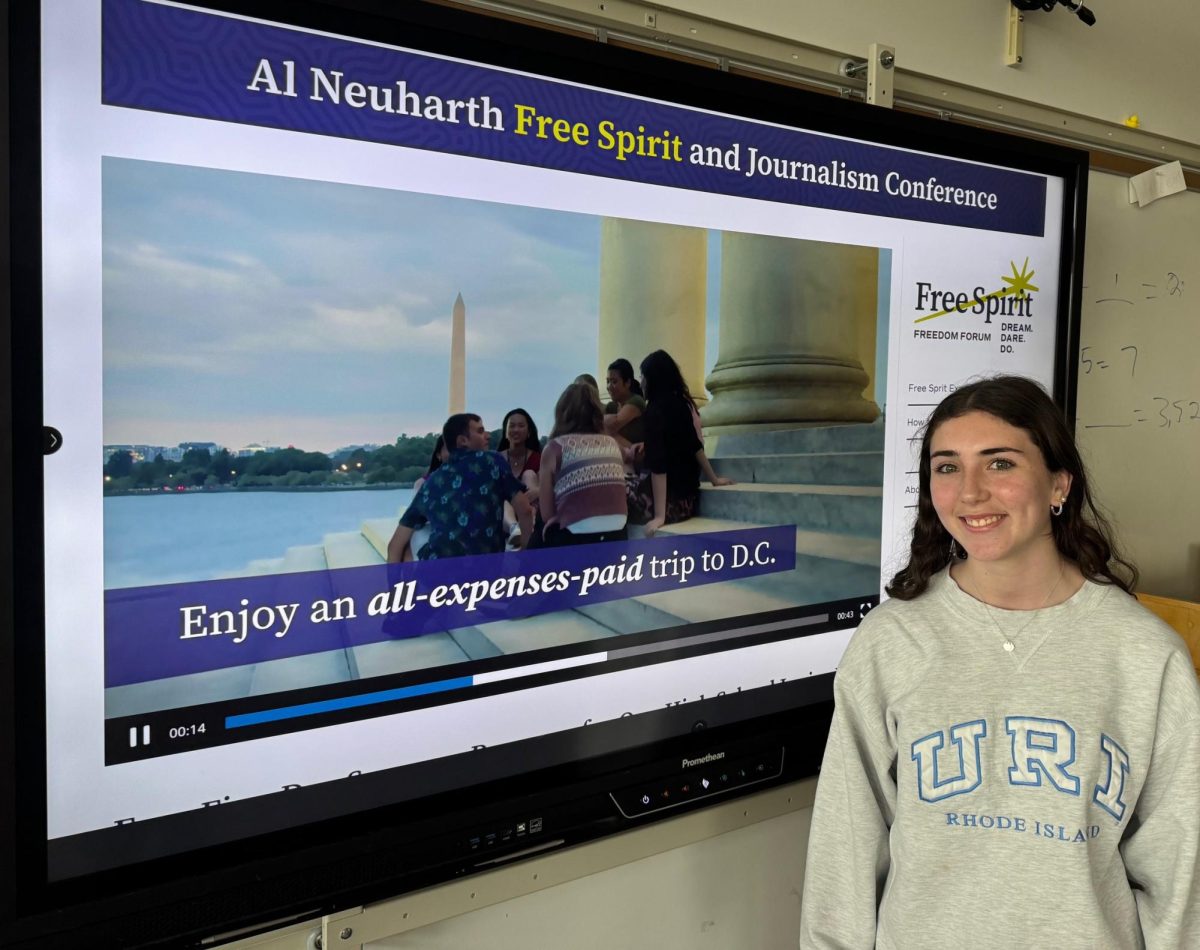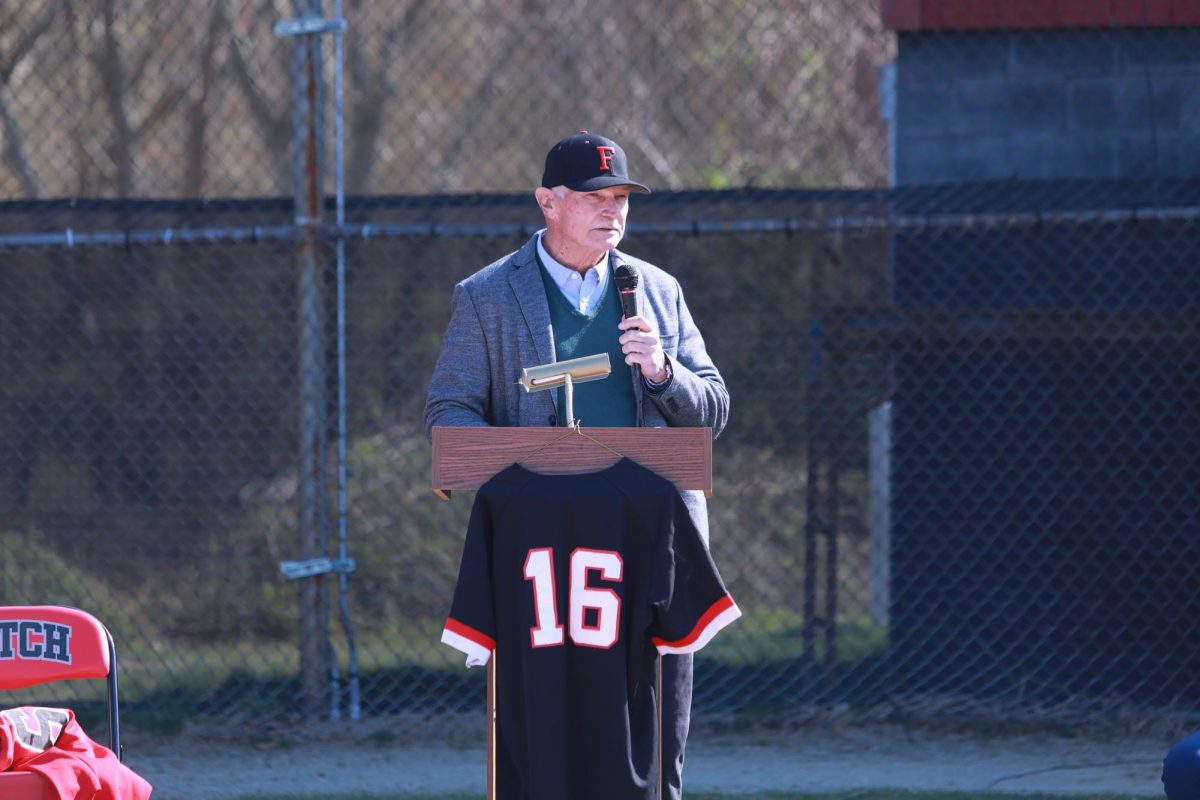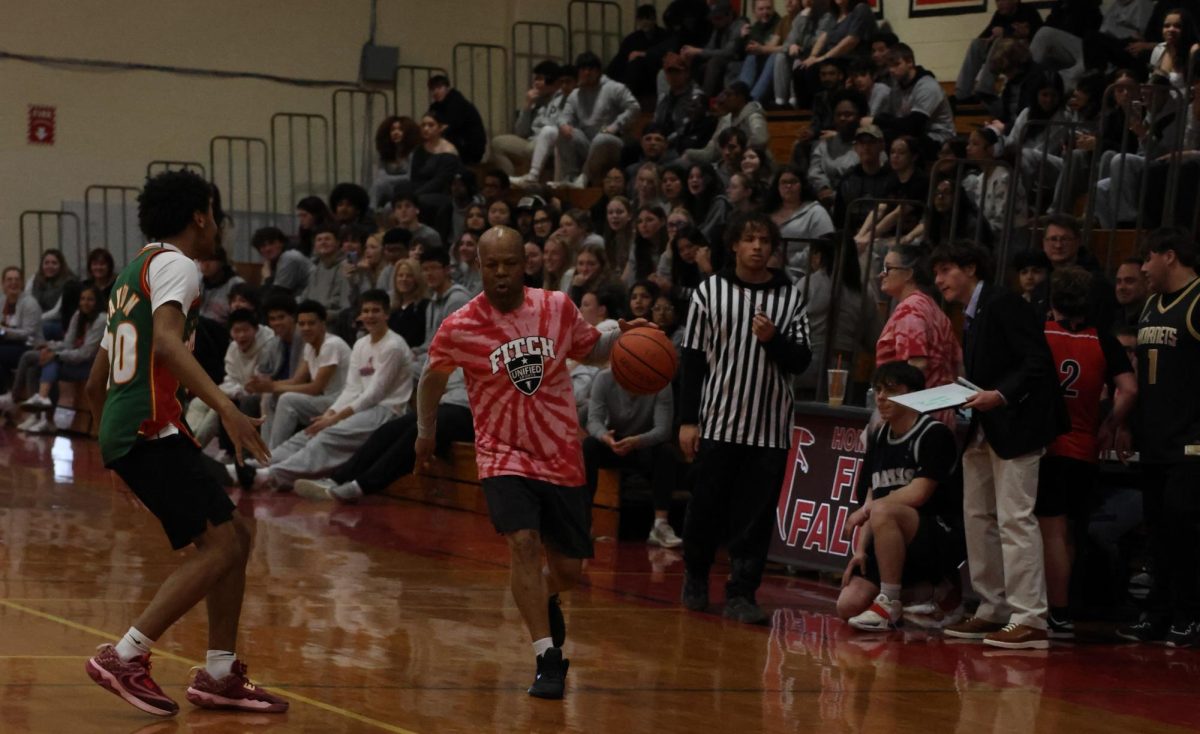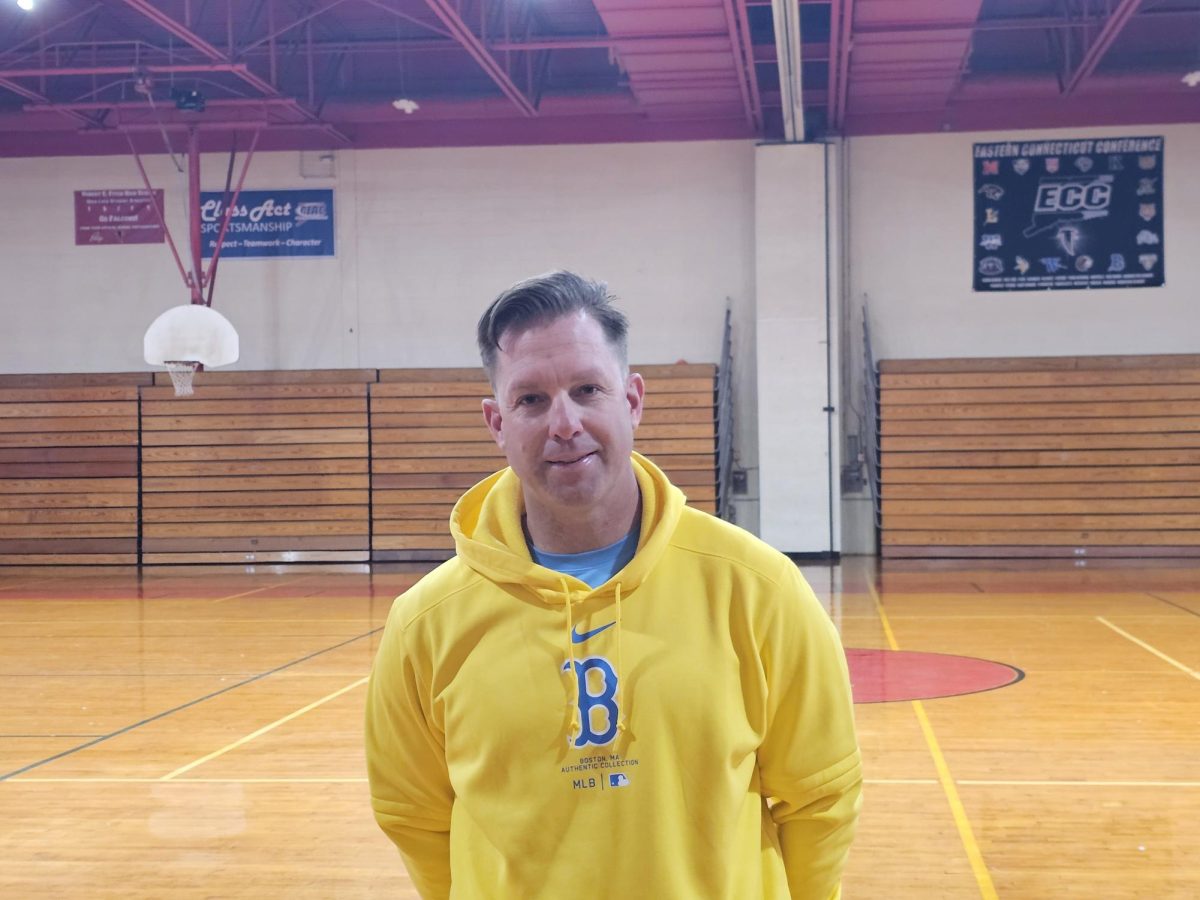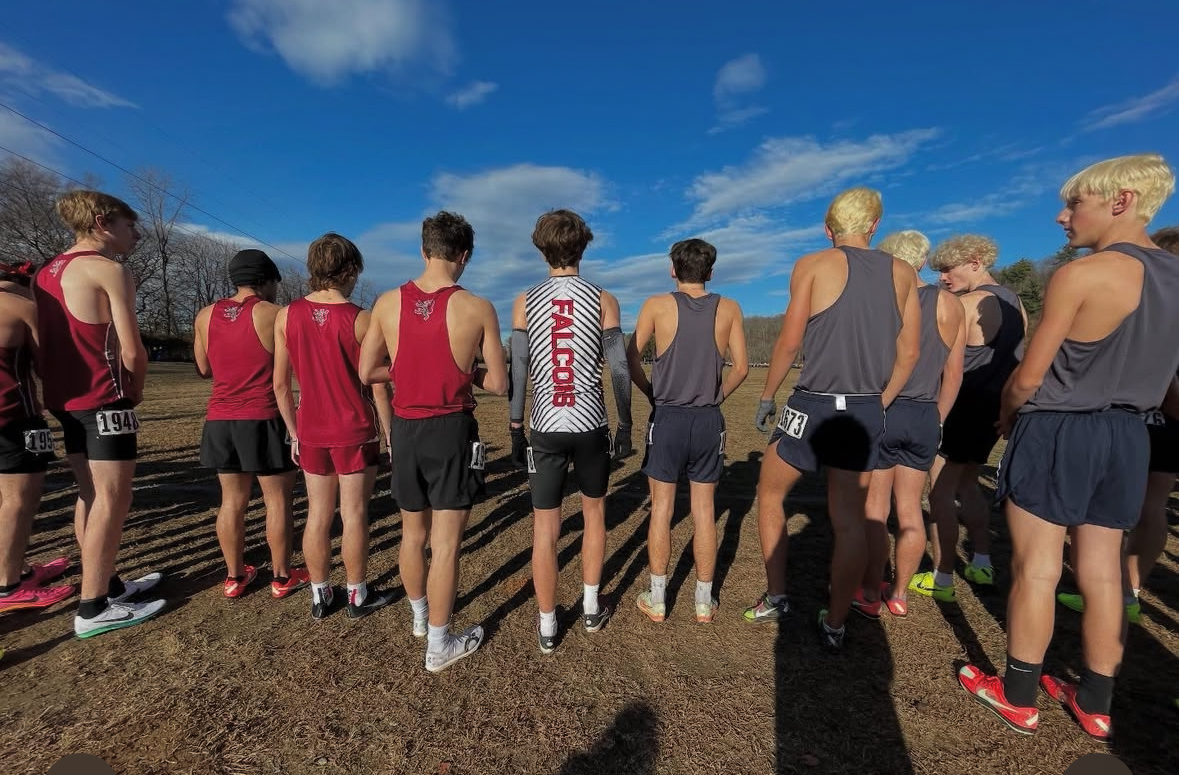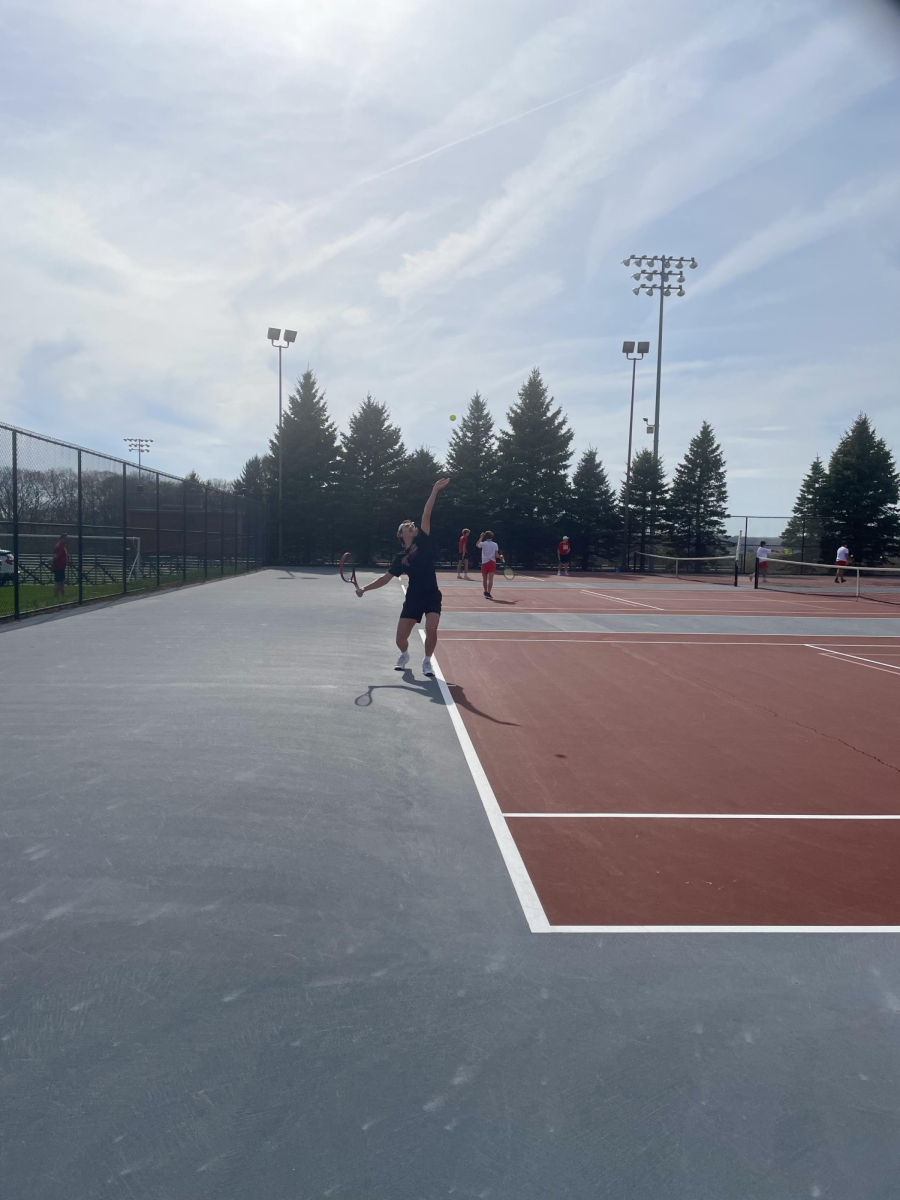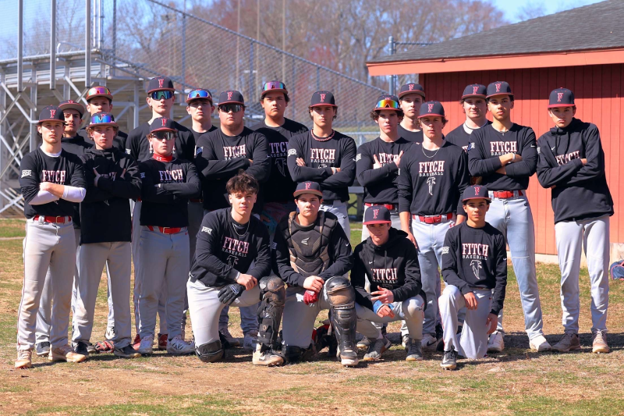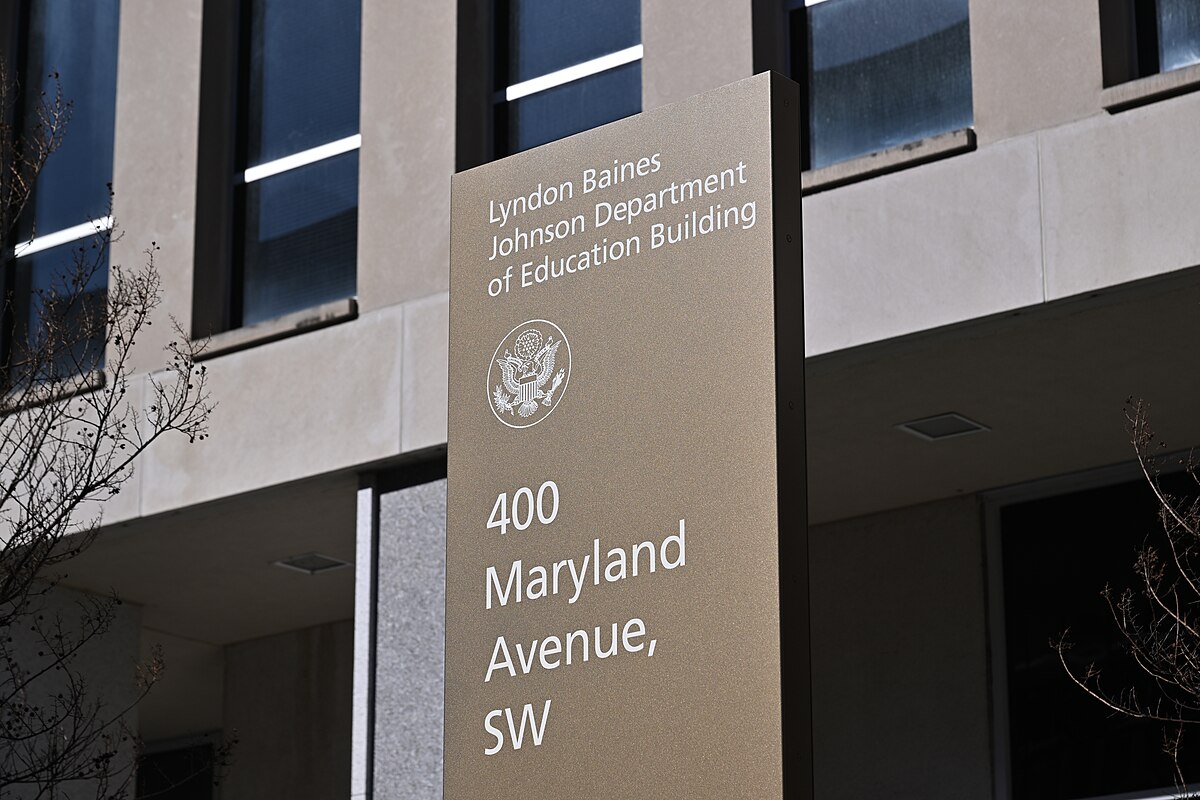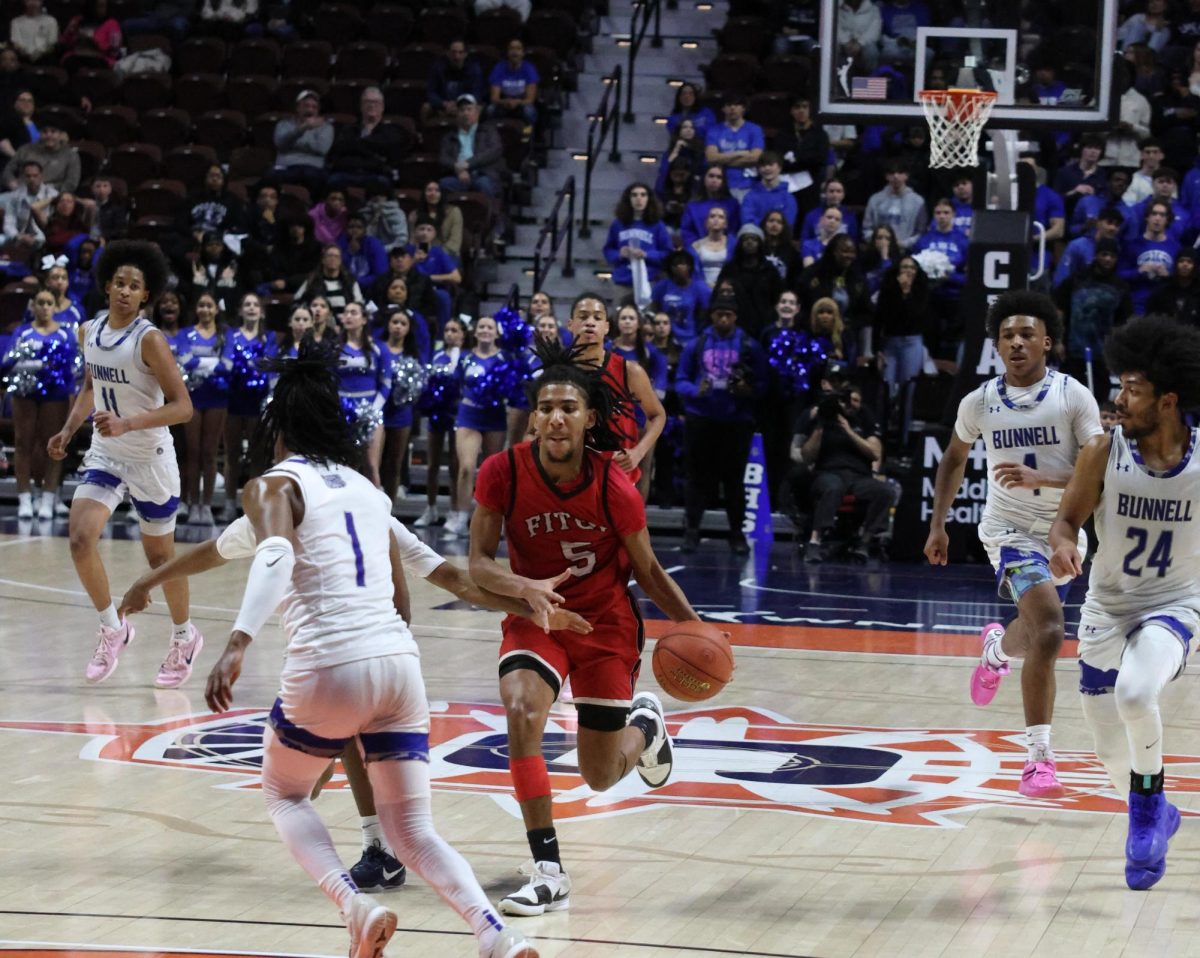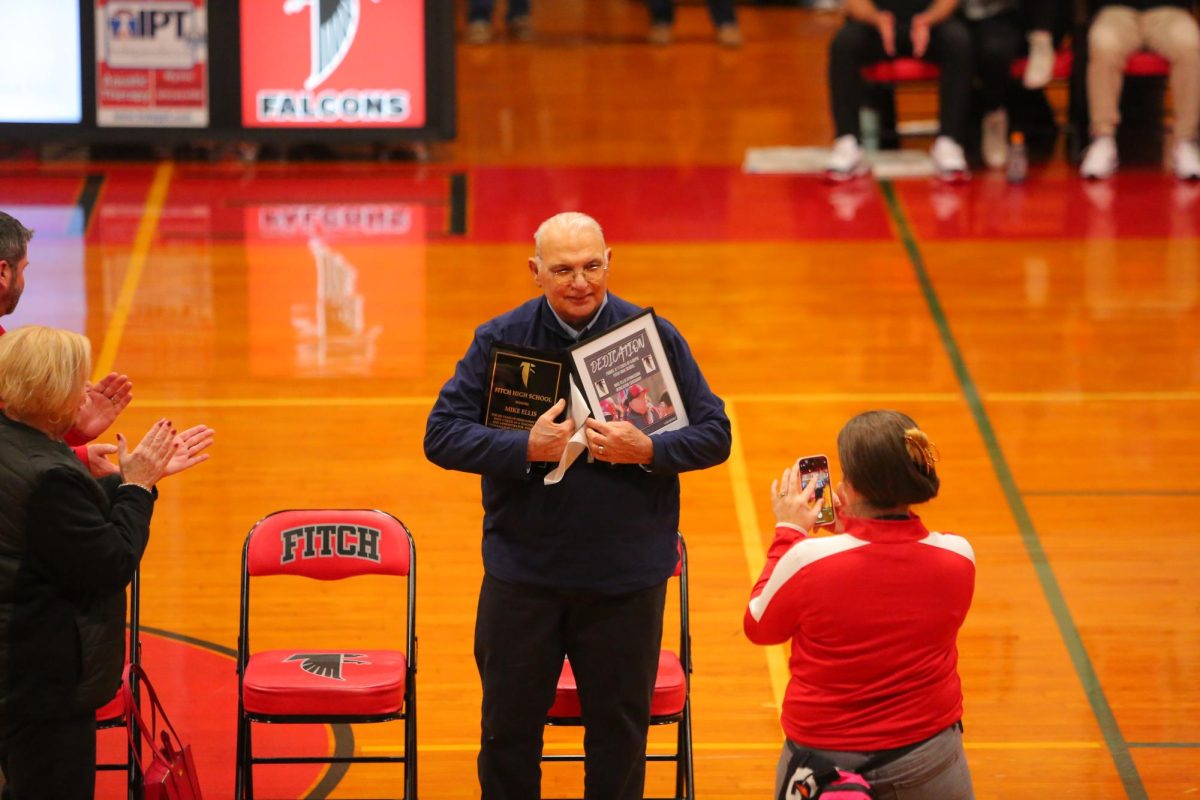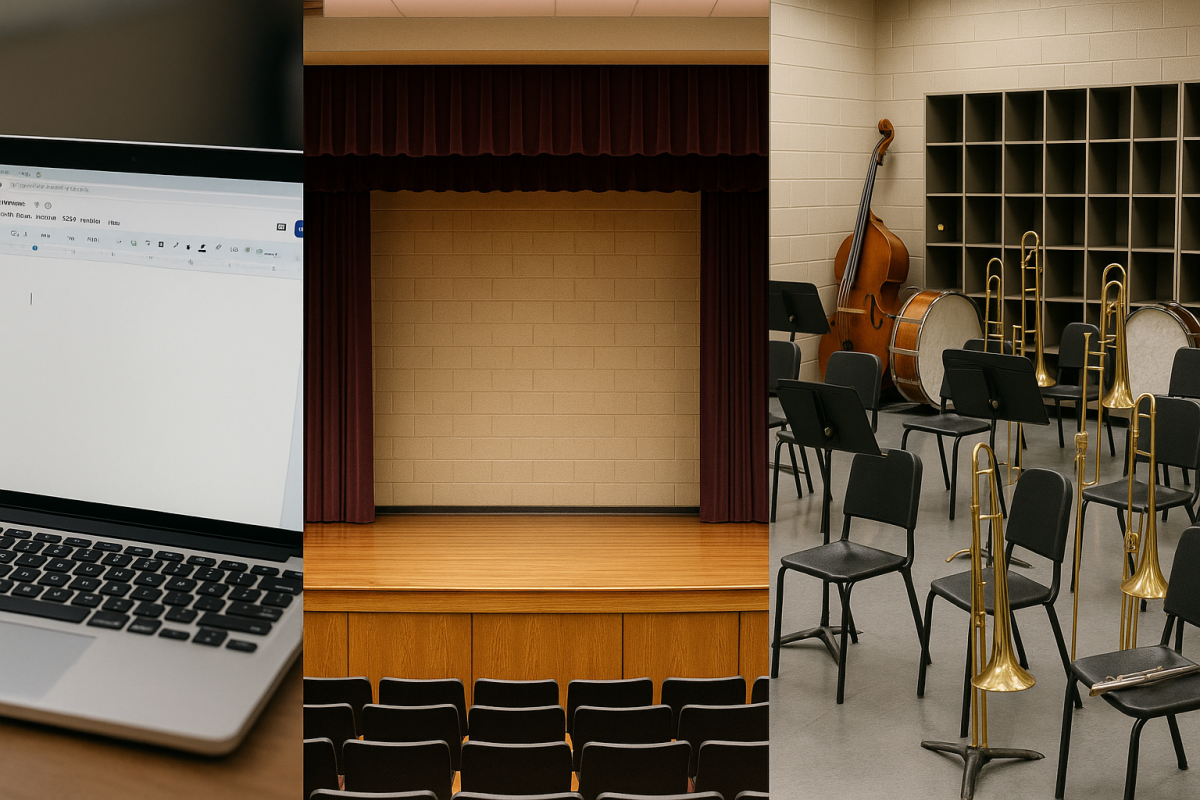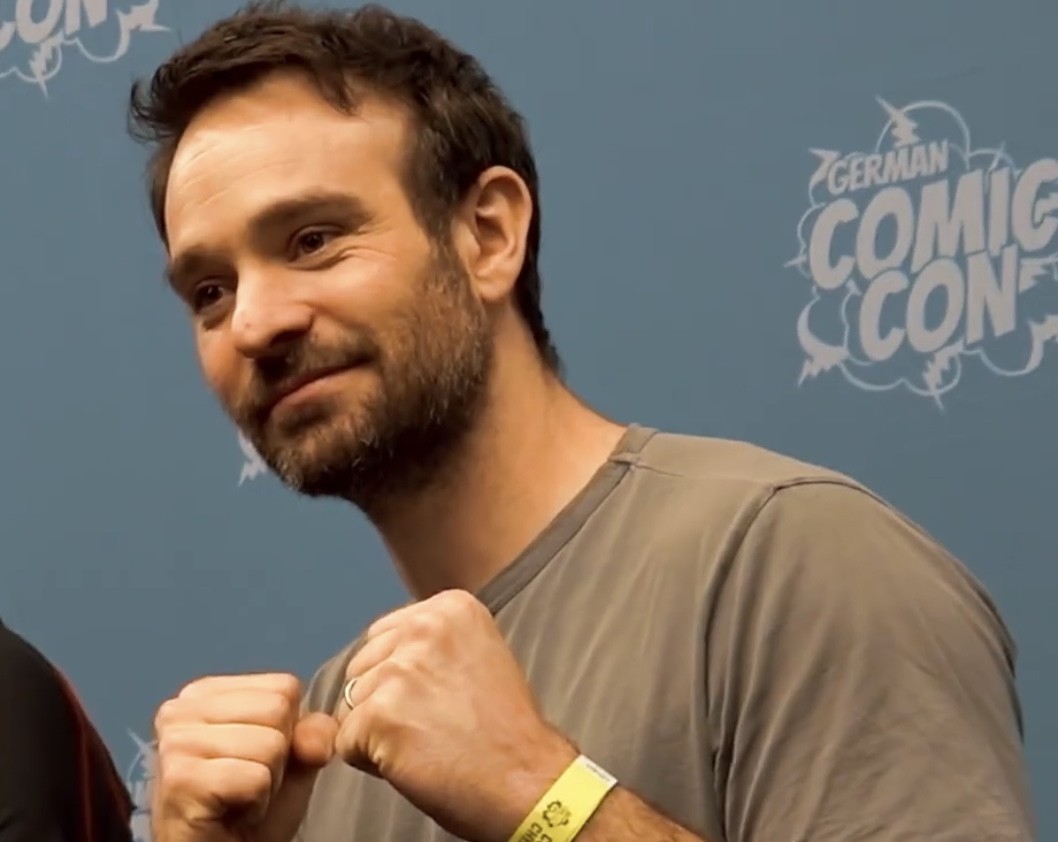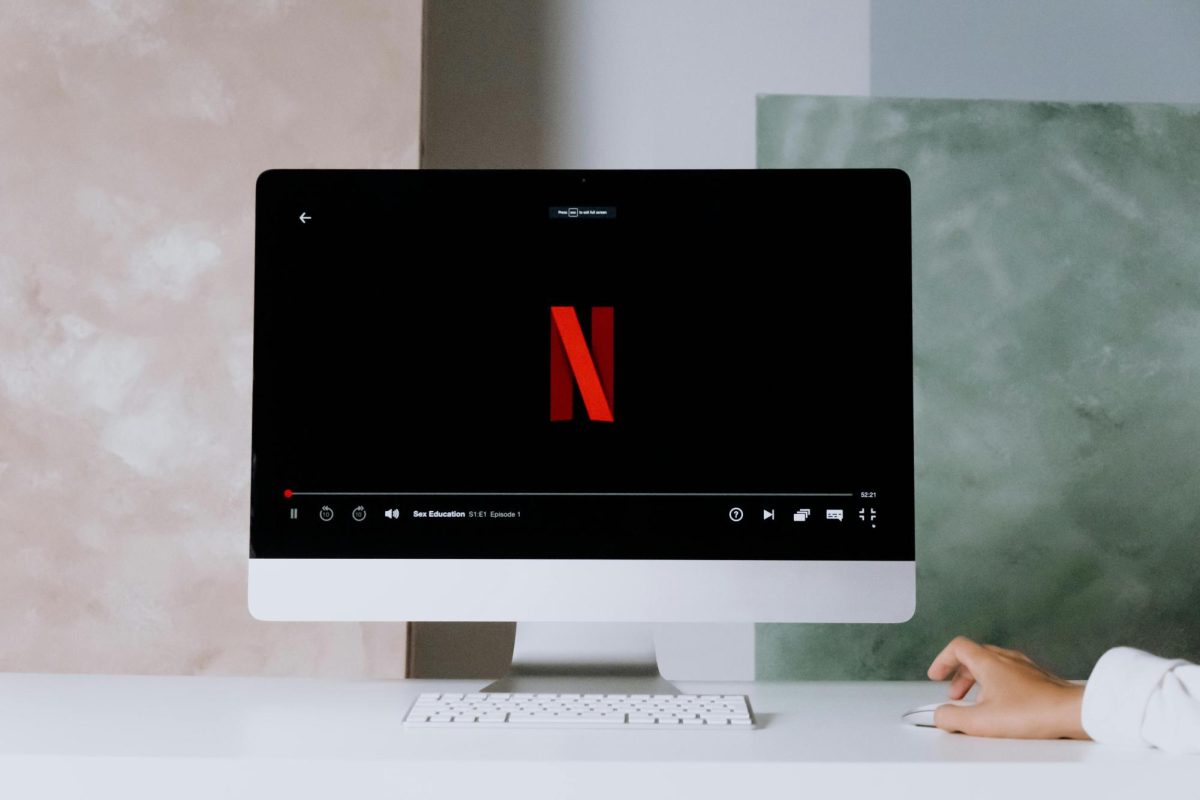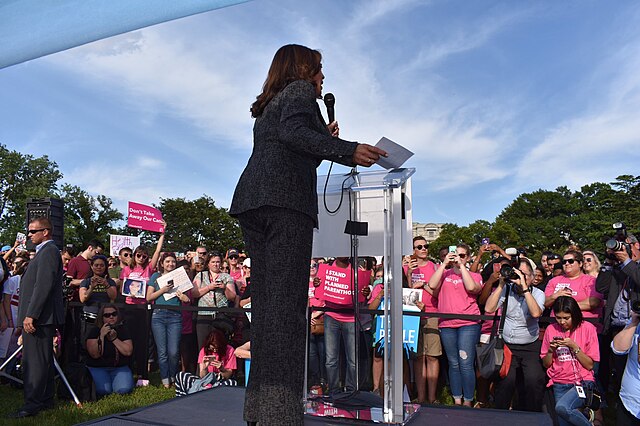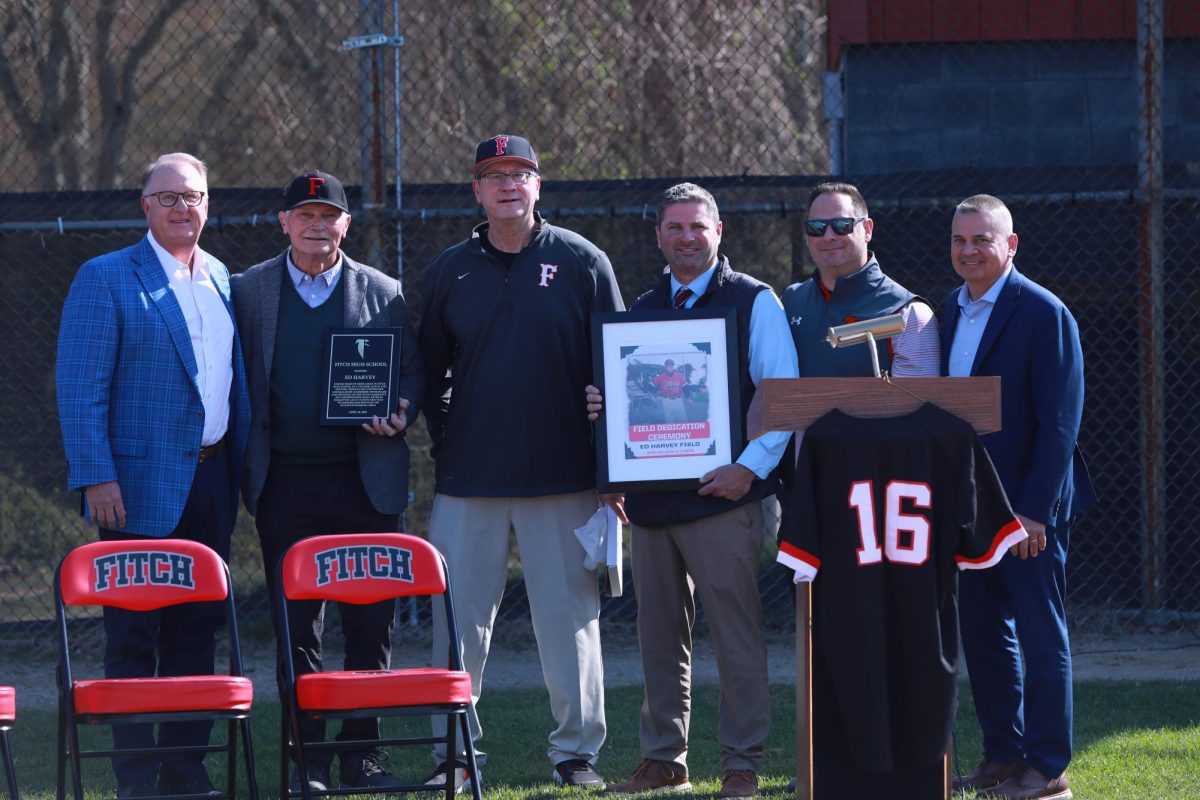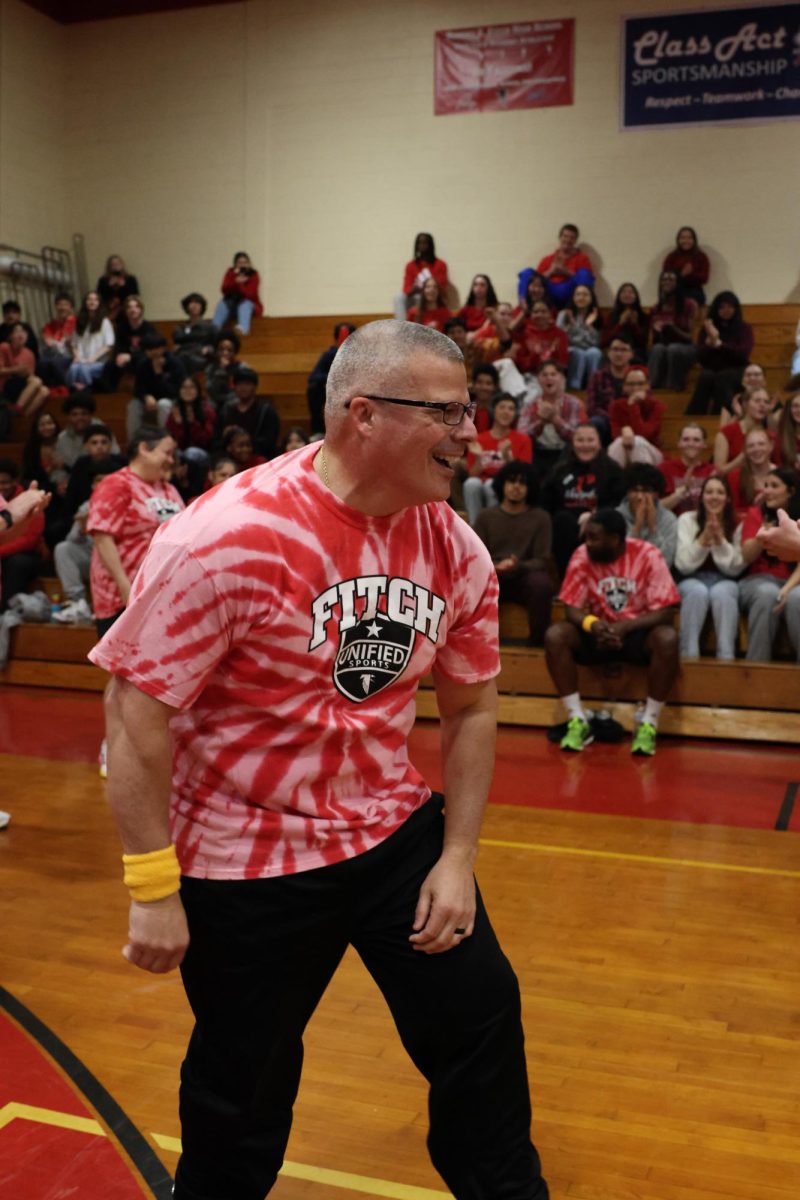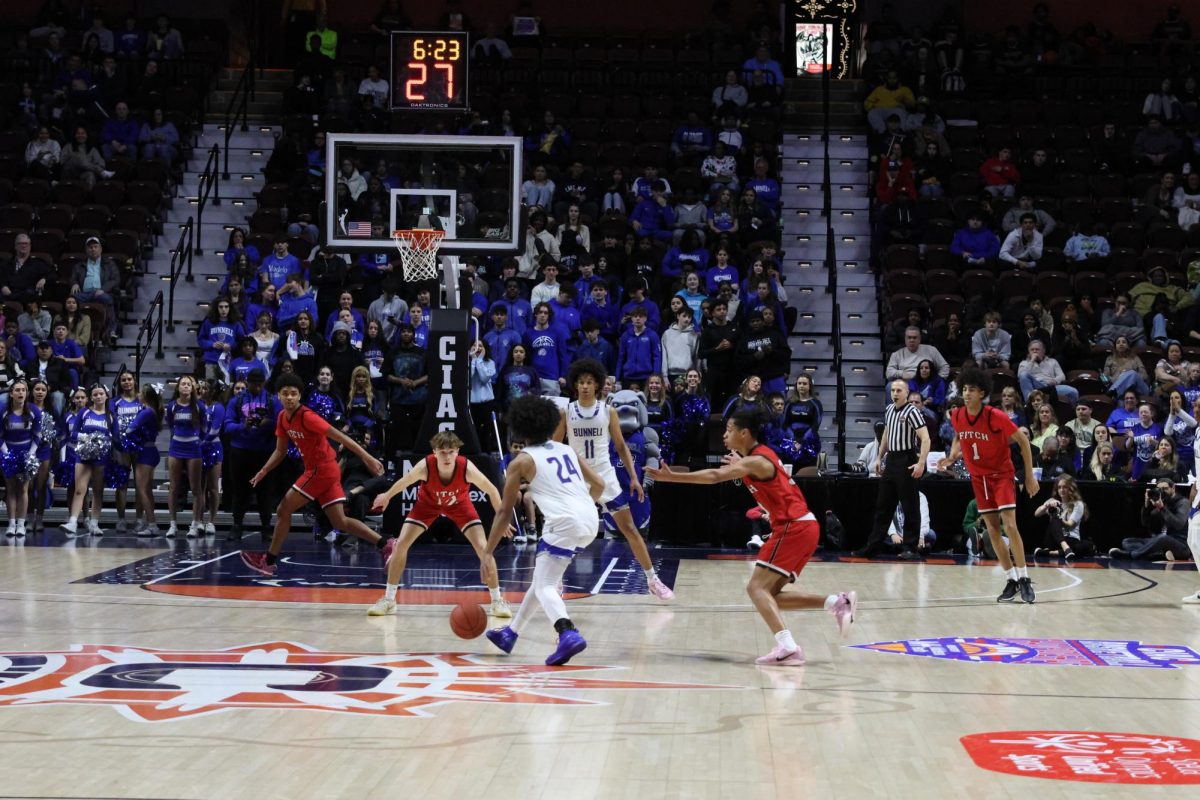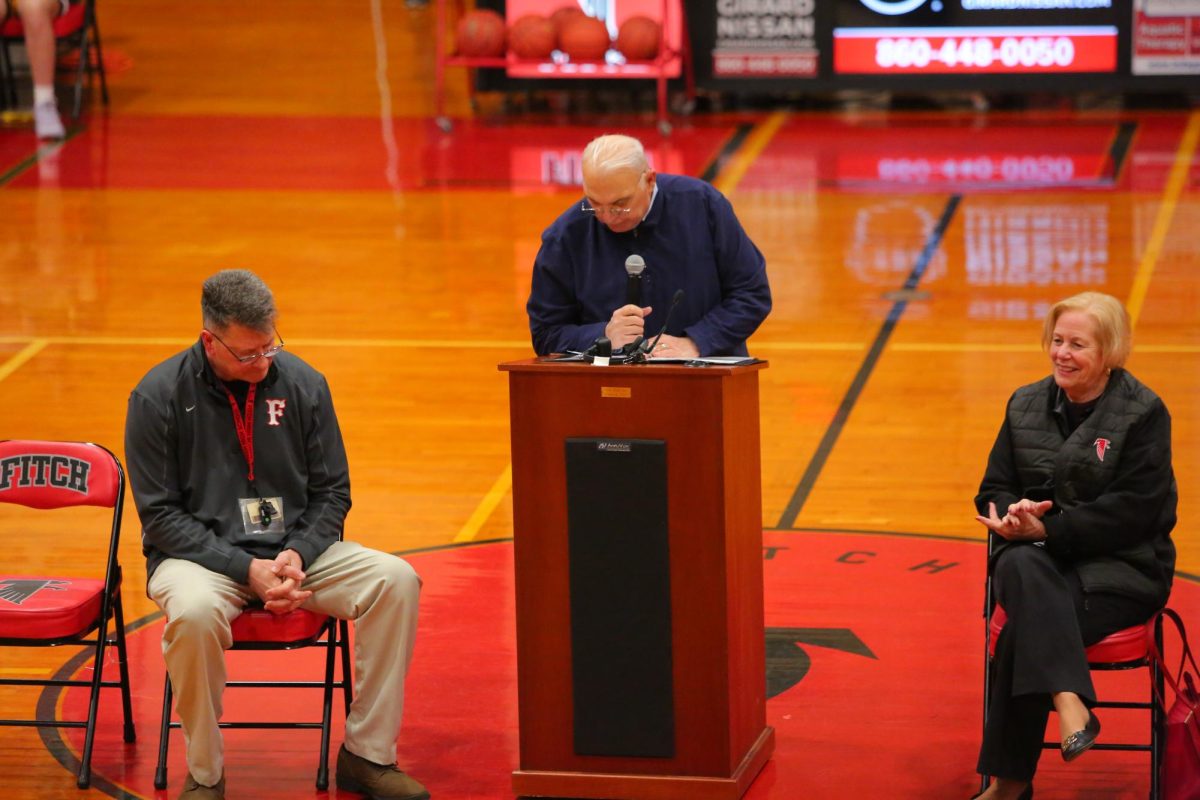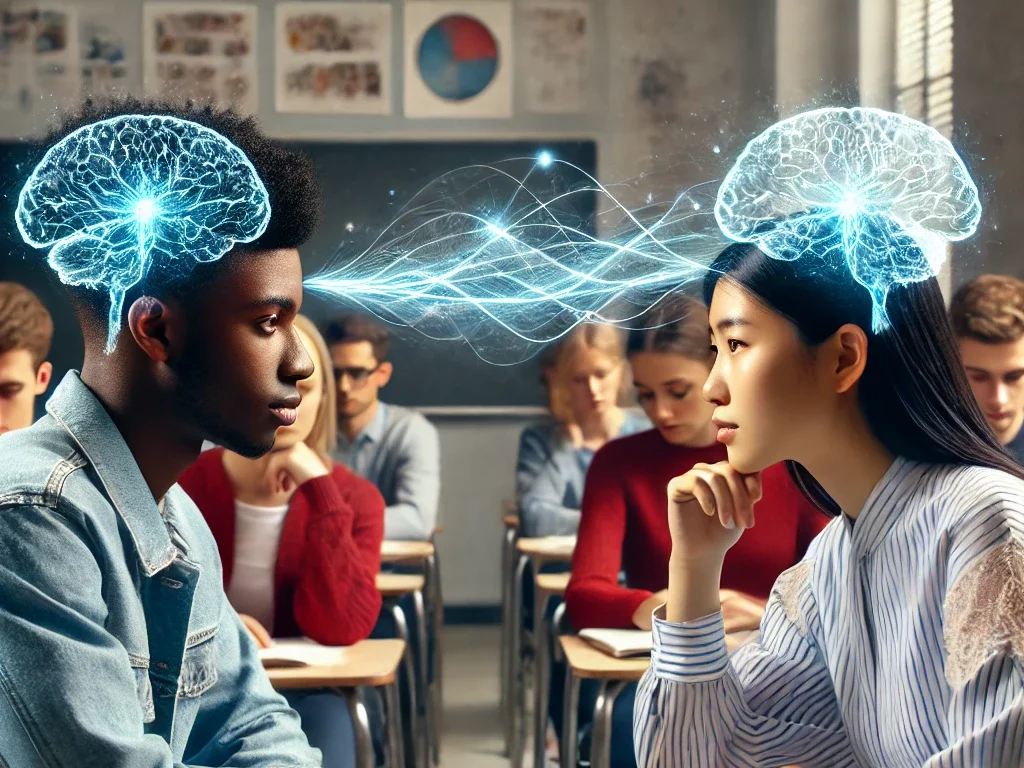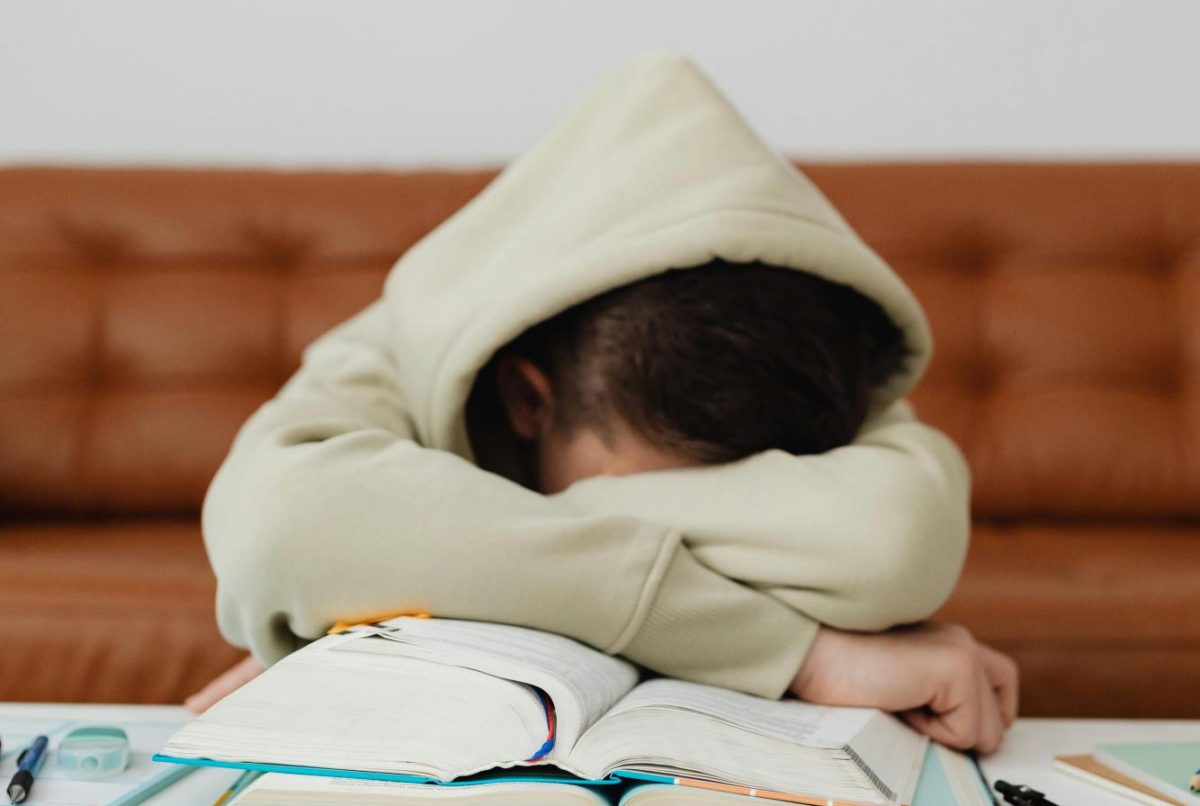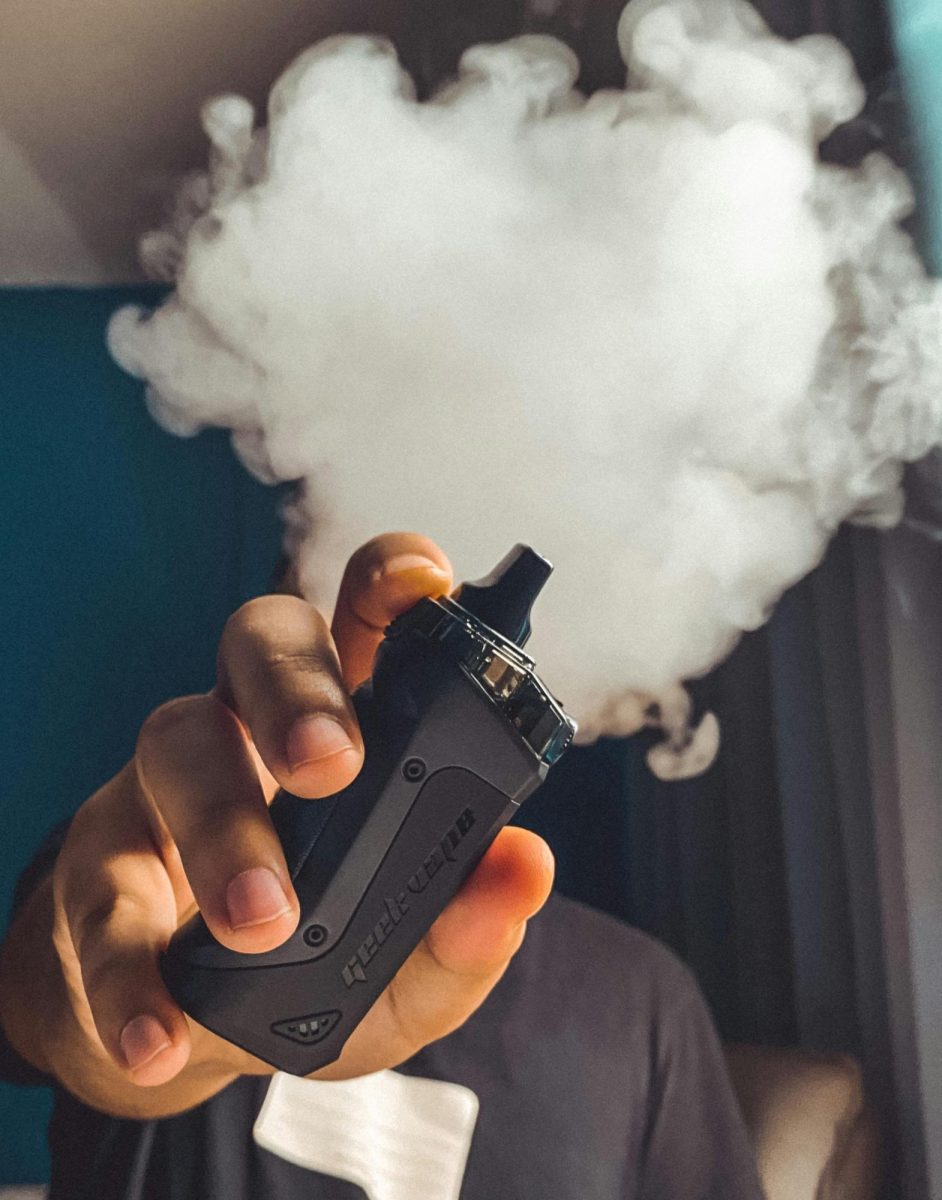As a result of the struggle with vape usage that a lot of school districts have been facing, the Falcon Press sat down with Assistant Principal Carmita Hodge to answer questions on the issue. Below is a transcript of the conversation
FP: Have you seen a growth [in the amount of students vaping] over time?
CH: Since I’ve been in this role, I have not, as a matter of fact, had to go to a bathroom or search anyone since maybe November or December. […] I’m hoping that means there’s a decline in [vape use at] Fitch High School. I’m glad you brought that question [up] because I had not even realized it myself [that] I have not had to search anyone in a long time.
FP: As a student, I’ve definitely known that there are a lot of people who vape in school. Is there something that you feel like students don’t really understand about their actions?
CH: I’m concerned that students don’t understand that when they just take a device from someone and don’t know what’s in that device that it may be harmful or even detrimental to their life. Just like when going to a restaurant, or when I was younger, going to a club, you walk away from your drink and you don’t know what people put into it, so I’d rather be safe than sorry and just not do it at all. So I think that’s the issue that people [don’t understand when they] just take things from someone and smoke it and think it’s just nicotine, and [then] it’s not.
FP: Do you believe that the measures the school has put in place have been effective in countering the vaping problem at Fitch?
CH: I think it has been a learning and growing experience, we have administrators in place who are going to call it out if they walk into a bathroom or if another student may have some information about something. But if it comes to our attention, yes we are calling it out. […] We’re gonna call parents and parents are going to have to come get you until we finish investigating. But I think the more we do it, […] students are understanding that if they try this it’s going to be addressed.
FP: It’s interesting that you mentioned that you felt there was a decline [of teen vape usage] because that correlates with some research from the FDA. They report a drop from 14.1% of high school students who currently vape to 10% this year.
CH: Okay good, I’m glad there’s research that says it too, — and it doesn’t matter why it’s declining — but I hope students understand the impacts or the affects of it, of how dangerous it is at any age, so to start at that young of an age, the likelihood of surviving, or thriving, or having a productive healthy life is gonna be slim, whether it’s smoking cigarettes or smoking [vapes].
FP: What do you believe the administration’s role is in countering this problem in the future?
CH: Education. Education. Education. And if education’s not working then consequences. And that involves […] including their parents into the equation. I think the more we say “This is what’s going to happen to you”, whether from an individual health impact, […] from the nurse, counselors, social workers, or administration [, it will help the problem]. GASP, remember, the Groton Alliance for Substance use Prevention, joins us in trying to educate our students as well.
FP: You mention GASP, so, what steps are possible on the town or city level to combat youth vape addiction or does this responsibility fall on the state/national government, or somebody else?
CH: We have a partnership with GASP, Ms. Carolyn Wilson, we’re always receiving information from her and she’s always available for whenever we need her to come in for workshops for our students or staff, [or] anytime there’s an event I’ve seen her at football games on the side to pass out information about drug prevention and abuse prevention.
FP: So you think there is a lot of help that can come in the form of philanthropic or non-profit organizations?
CH: Yeah, exactly, but I think that we can have all the resources that we have, and we do, I think we do have plenty of resources, the question is “Will people take advantage of it?” and that’s what I don’t think is happening [right now].
FP: Are you optimistic about the future of this problem?
CH: I am. I am. I’m hoping we won’t have to put more structures and policies in place, I think we just implement the ones that we had, and I think that students will understand that if this happens, first, they shouldn’t do it because of themselves and their families, and how it impacts them, but [also] how it impacts their academics and school community, because [some of] our students can’t use the bathroom. That’s ridiculous. Some people aren’t going to the restroom because they don’t want to be involved in that. So all our students need to be comfortable and be able to use every area of our school. So yes, I am optimistic, I really am. I think it’s going to be better for all of us next year [in the 2024-2025 school year].
FP: So, to end, I would like to ask what you think the role of a concerned student is in this problem.
CH: I know we had the Students Against Destructive Decisions organization, students can be part of this organization and make announcements. I see posters [too]. There can be some education from other students. I think […] students hear better when it comes from students. Adults can tell them all day and every day and they think we’re just nagging them. But if it comes from students I think they hear it louder and clearer. So I think joining SADD, or some organization in the school, and just mold it all around, announcements and everything [would help students].


